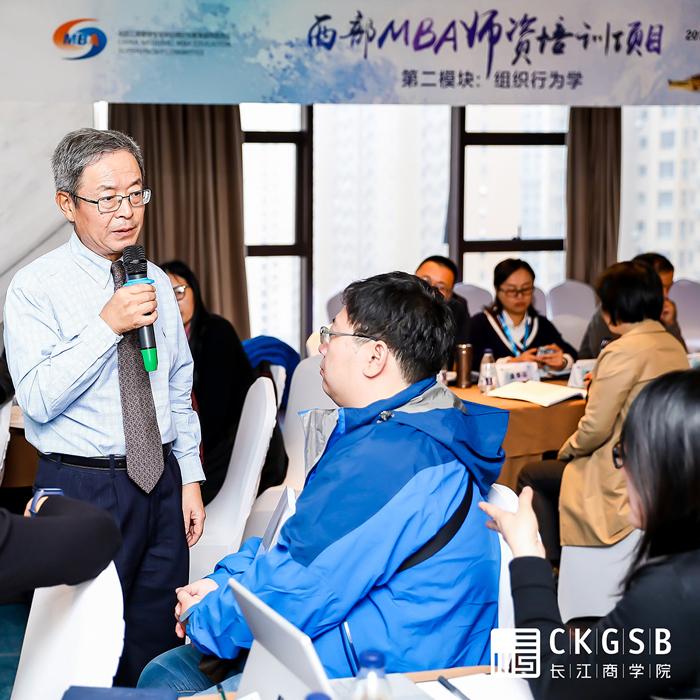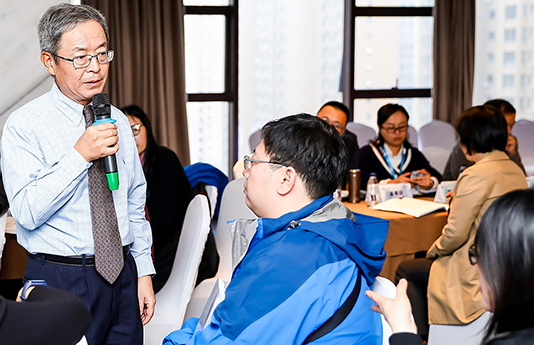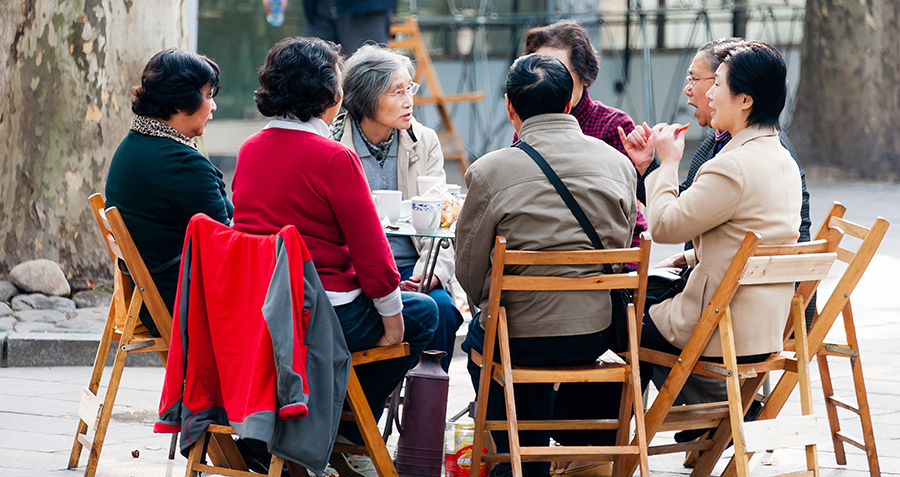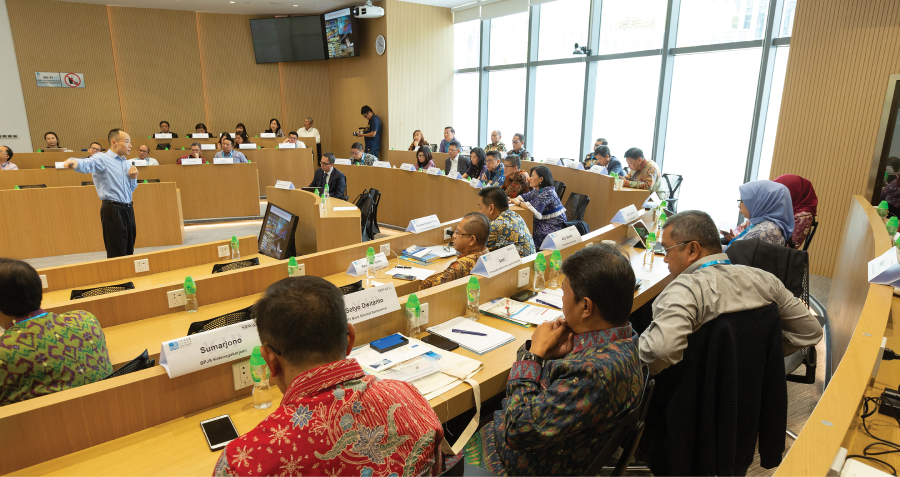Thoughts from CKGSB’s Professor of Management and Associate Dean for Administration, Government Relations and Campus Development, Alumni Affairs and the Development Foundation, Yan Aimin

Professor of Management and Associate Dean for Administration, Government Relations and Campus Development, Alumni Affairs and the Development Foundation, Yan Aimin, recently received the “Top Ten Public Figures of the Year” award from the IFENG Action League, a prestigious award in China honoring those who work towards social causes across various sectors.
As the associate dean of CKGSB’s development foundation, Dr. Yan oversaw a three-project campaign, which began in 2017, to alleviate poverty in Ji’an. These three projects utilize CKGSB’s industry expertise in education and business and aim to improve access to basic services of the community, reduce the impact of disasters and raise the living standard in Ji’an, a poverty-stricken district in Jiangxi.
The Ji’an poverty alleviation project is one way in which CKGSB seeks to enhance public welfare and give back to society through its efforts in poverty alleviation. It is also a great example of how CKGSB’s social innovation efforts draw on the school’s core business – education and business management. Such efforts are so important to CKGSB that they are embedded in the school’s DNA, with the goal of inspiring and creating public interest among its students and alumni, and raising awareness in working towards philanthropy efforts and alleviating poverty.
In fact, CKGSB introduced the humanities as a compulsory subject into all its degree and non-degree programs in 2005, to provide a more holistic view of business. It is also the first business school to require all MBA and EMBA student to complete 24/48 hours of social and community service to give back to society in order to graduate. Since this requirement was initiated in 2009, CKGSB students have dedicated more than 150,000 hours of service to helping local communities in need. The Ji’an project is one of many ways students dedicate their time and expertise to helping communities in need and alleviating poverty.
Businesses have always been an important force in rural revitalization. As one of the most well-known business schools in China, CKGSB is at the forefront of fostering business participation in revitalizing underserved rural communities.
Professor Yan said that although China’s public welfare and charity undertakings have achieved a lot in recent years on a macro level, they are not fully developed yet. In the future, it is necessary to integrate the government, enterprises, social organizations and other parties to achieve a more integrated development.
At the practical level and considering the situation in China, Professor Yan said that it is impossible to rely solely on businesses, non-profit organizations or individuals to achieve development in rural communities. It needs to combine the leadership of local governments, with the strengths of the local regions with the resources of businesses and non-profits
“The Ji’an program has been running for seven years, benefiting more than 150 local entrepreneurs, some of whom have gone public. At the same time, in cooperation with the local government of Sichuan, CKGSB launched a “Shancha – Gougunao tea” public welfare project to help market the tea from this region. All the profits were used for the talent training program in the local tea industry, helping to revitalize the plantations and its communities.”
“After completing the historical task of poverty alleviation and building a moderately prosperous society, the Chinese government’s next task is to solve the uneven distribution of income and wealth, strike a balance between efficiency and fairness, promote high-quality development, and achieve common prosperity,” said Yan.
He goes on to say, “Entrepreneurs are the heroes of China’s reform and opening up, but also the beneficiaries. It is our duty to give back to society. Entrepreneurs are better equipped in terms of resources, ability, education level, cognitive ability and internationalization. I believe that entrepreneurs should promote high-quality development through scientific and technological innovations; at the same time, they should create social value and contribute to common prosperity and social equity.”
Over the past 20 years, CKGSB has been teaching and advancing together with its students and alumni, and made progress together in social innovation and social responsibility. CKGSB advocates and encourages students and alumni enterprises to help find solutions to social problems and promote social innovation.
In recent years, CKGSB has paid great attention to inclusive education projects. For example, it has set up the Cheung Kong Philanthropy Scholarship for talents from non-profit organizations, trained entrepreneurs in underserved regions, opened programs for agricultural entrepreneurs, and provided training for business school teachers in China’s Western regions where education lags behind the more developed Eastern regions.
In the future, we hope to seek solutions to major social problems by strengthening our collaboration with government organizations, enterprises and social organizations. We will actively call on CKGSB alumni to participate in public welfare projects in the fields of rural revitalization, education, medical care, elderly care, and zero carbon efforts. At the same time, we hope to guide enterprises to combine social issues into their core business to achieve economic and social value.




















